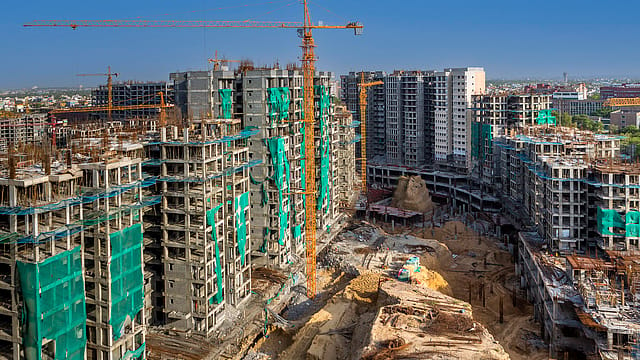Inflation, economic volatility top risks for global construction industry: Report
ADVERTISEMENT

Over 28% of consturction contractors globally believe inflation and economic volatility as their most significant business risk, followed by increased material costs (16%), bidding and contracting risk (13%), hiring and retention risk (11%), supply chain disruptions (9%) and cybersecurity risk (6%), according to a report by leading insurance broker Marsh and global data provider GlobalData.
The report notes that legal and regulatory risks, insurance and surety challenges, environmental and climate risks, and health and safety risks were cited as significant concerns.
When businesses were asked about their firms’ strategies for managing increased risk demands, they revealed a range of methods are being implemented, with the most common approaches including building stronger partnerships with suppliers and subcontractors to share risk (39%), negotiating stronger contract terms to shift risk responsibility (34%), and increasing contingency budgets to cover potential risk-related costs (31%).
This report provides an overview of the top risk issues identified in the survey and offers insights into the strategies that peers in the industry are taking to help manage these challenges.
Among the financial risks, more than a quarter of contractors (28%) identified the current economic situation and inflation as their primary business risk this year. The next most cited risk was increased material costs, mentioned by 16% of respondents.
Despite regional differences in regulatory environments and the ease of doing business, the survey results highlighted the importance of being selective and assessing profitability when bidding for projects. More than two-fifths of respondents said they are conducting more thorough prequalification and risk assessments of subcontractors before bidding.
On risks associated with the availability of a skilled workforce, the report says the high employee turnover is detrimental to businesses, impacting not only financial sustainability but also productivity, employee engagement, and job expertise. "Common reasons for turnover include poor management, which can leave employees feeling undervalued and underappreciated, as well as jobs that fail to meet employee expectations."
On heightened climate and sustainability risks, respondents anticipate that climate risks will impact their businesses in various ways, with rising costs being the most significant concern. These risks may stem from the need to decarbonise materials and processes or from additional costs associated with extreme weather, such as lost time due to intense rain or extreme heat.
Despite the recognition of these risks, the adoption of climate risk management strategies among survey respondents was low. The most commonly applied strategies include assessments of physical climate risk in the supply chain and physical climate risk assessments (32% each), followed by the inclusion of net-zero commitments and targets in designs and plans (29%).
Construction companies should integrate risk modelling throughout the project lifecycle to identify potential risks that could cause delays and damage while promoting resilience against climate-related challenges. By analysing historical climate data and future projections, companies can develop strategies to minimise vulnerabilities and enhance project resilience.